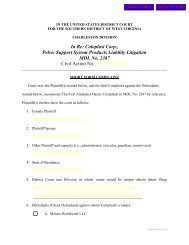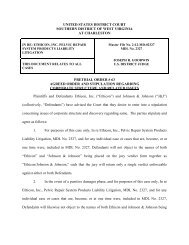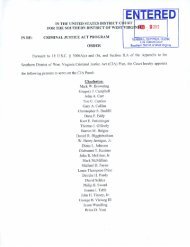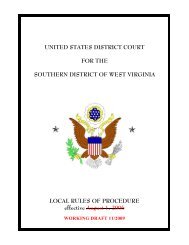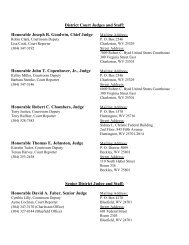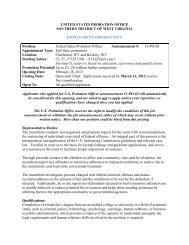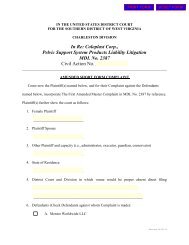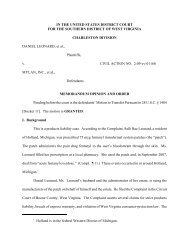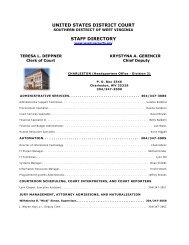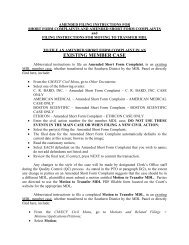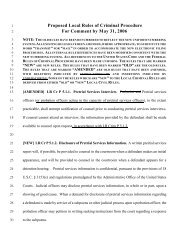R:\Storage\AE\Chapman, Ronald (C)\Order denying motion to ...
R:\Storage\AE\Chapman, Ronald (C)\Order denying motion to ...
R:\Storage\AE\Chapman, Ronald (C)\Order denying motion to ...
Create successful ePaper yourself
Turn your PDF publications into a flip-book with our unique Google optimized e-Paper software.
esult, the defendant contends that his due process rights have been infringed and that the statute isunconstitutionally vague.A. The Defendant’s Right <strong>to</strong> Procedural Due Process Has Not Been Infringed“Procedural due process imposes constraints on governmental decisions which depriveindividuals of liberty or property interests within the meaning of the Due Process Clause of the Fifthor Fourteenth Amendment.” Matthews v. Eldridge, 424 U.S. 319, 332 (1976). In consideringwhether procedural due process has been afforded, the court must balance three interests: 1) “theprivate interest that will be affected by the official action;” 2) “the risk of an erroneous deprivationof such interest through procedures used;” and 3) “the Government’s interest, including the functioninvolved and the fiscal and administrative burdens that the additional or substitute proceduralsafeguards would entail.” Id. at 335.As support for his position that his procedural due process right has been violated, thedefendant cites United States v. Emerson, which expressed concern over a lack of express findings<strong>to</strong> satisfy either 922(g)(8)(C)(i) or (ii) in a Texas domestic violence protection order. See 270 F.3d203, 261 (5th Cir. 2001). Section 922(g)(8)(C)(i) and (ii) are the provisions which require either anexpress “finding” of a threat against an intimate partner of child or an explicit prohibition on the useor threatened use of force against and an intimate partner of child. While the Emerson court didexpress concern because there was not an explicit finding of a threat and the prohibition on forceappeared <strong>to</strong> be based on boiler-plate, it ultimately found that due process had been satisfied. Id. at261-264. The court explained, “[w]e conclude that Congress in enacting section 922(g)(8)(C)(ii)1 (...continued)through (6) of this section.-7-



